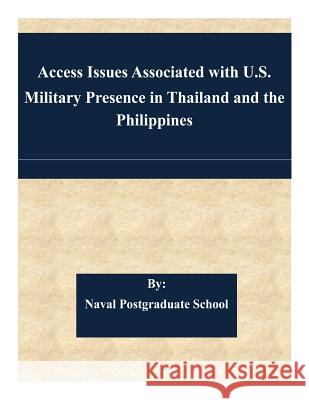Access Issues Associated with U.S. Military Presence in Thailand and the Philippines » książka
Access Issues Associated with U.S. Military Presence in Thailand and the Philippines
ISBN-13: 9781508905257 / Angielski / Miękka / 2015 / 110 str.
Access Issues Associated with U.S. Military Presence in Thailand and the Philippines
ISBN-13: 9781508905257 / Angielski / Miękka / 2015 / 110 str.
(netto: 49,09 VAT: 5%)
Najniższa cena z 30 dni: 51,83
ok. 16-18 dni roboczych
Bez gwarancji dostawy przed świętami
Darmowa dostawa!
In pursuit of the objectives of the U.S. National Security Strategy and the National Military Strategy, the U.S. Armed Forces require access to military and logistics facilities overseas to be able to support and sustain its combat power projection. Access to these places translates into capabilities. An American military forward presence in time of peace as well as during a regional crisis lends credibility to U.S. diplomacy. Moreover, access to forward locations is expedient when engaging transnational threats or supporting humanitarian missions, e.g., the South and Southeast Asia tsunami relief operations. This thesis analyzes the political opposition to U.S. military presence in Thailand and the Philippines. The historical context that led to the development of this opposition is examined in detail. The rationale of those who oppose, as well as those who support, American military presence is clearly delineated. By understanding the sensitive political issues, U.S. military planners and operators can adapt base access strategies according to the existing political climate in these two countries. The politics unique to each environment will dictate the combination of "basing" approaches tailored to meet the U.S. military objectives as well as the public diplomacy required to support them.
Zawartość książki może nie spełniać oczekiwań – reklamacje nie obejmują treści, która mogła nie być redakcyjnie ani merytorycznie opracowana.











